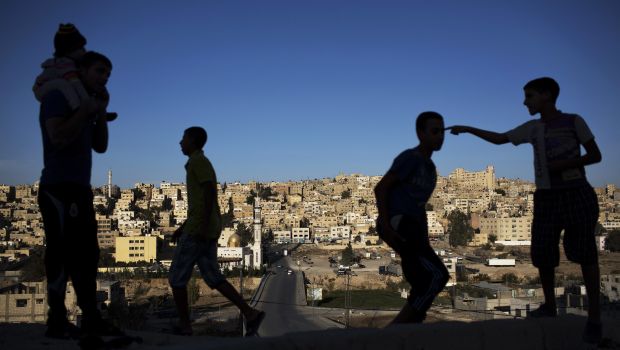Any sensible person cannot deny that some Gulf citizens are actively participating in the Syrian conflict. But what is the extent of their participation? And does it pose a threat to the stability of the region? How does someone inflate Gulf participation to the extent that it can be considered a threat, especially considering all the official and legal regulations surrounding it? All of those claims are either baseless or stem from exaggeration and dramatization.
Let’s consider the period of the Afghan–Soviet war in the 1980s: When thousands of young people from the Gulf took part in this conflict—especially Saudis—this participation received official support, popular acclaim, and approval from the US.
With this groundswell of activity, the Gulf mujahideen had a clear impact on the course of the war in Afghanistan, and they posed a threat to the stability of the region. Our youth were soldiers in areas run by Afghans and senior Arab mujahideen from non-Gulf countries who guided them, trained them, and encouraged them to fight. The history from that era does not make note of the threatening nature of the return of these young Gulf combatants, but instead refers to their calm departure from the battlefields and their return to their homelands. Some of them stayed behind and others were killed in battle.
If we juxtapose the two conflicts and compare their results, then the notion of a threat to the region’s stability stemming from Gulf youth returning from Syria’s battlefields is dubious. This is because their numbers are small and the impact of their participation even smaller. I believe that those few who decide to stay in Syria after the fighting subsides will have negligible impact on the state of affairs there.
Third, what drives a young Gulf citizen to undertake a life-threatening journey despite all the official warnings and legal appeals? Certainly it is not a love for the world, nor a penchant for wealth, political power and fame. No, in most cases, it is a very human reaction driven by the heart. They see gruesome pictures and bleeding bodies, dead children, and weeping women. They know that these were caused by injustice, hatred and mass murder, and consequently their souls are moved and they believe that they have been summoned by religion and God. And only a few of those individuals harbor ulterior motives to see the world or win wealth and status. Most of them are only interested in defeating oppression, injustice and murder. Should they be defeated, they will rejoice and return to their home countries just as they did in the case of Afghanistan.
Fourth, a threat to regional or domestic security cannot occur unless there are differences in opinion between partners in one country or the broader region so severe that fractures begin to surface.
Fifth, it’s too late to talk about the region’s stability. The current instability is unprecedented. The region descended into chaos after the first spark in Dera’a, incited by the Ba’athist regime in all its stupidity, arrogance and recklessness. The effects spread throughout Syria and the surrounding regions, beginning with Lebanon and continuing through Jordan, Iraq and Turkey. Nobody knows where this will end.
Finally, UN and Arab League Special Envoy Lakhdar Brahimi declared his “deep regret” over not meeting the expectations of the Syrian people to provide them with sufficient security or food. The meaning behind this is that destruction, murder and genocide will continue for these defenseless people, of all walks of life, in the face of injustice, oppression, and tyranny—a rarity in modern history.
I hope that the above is not understood as a justification for the participation of Gulf youth in this asymmetrical war, but rather as an explanation of the circumstances and their effects from a perspective that may be flawed or wrong. We hope all of our youth can be spared from this great devastation and that the Syrian people do not have to cope with a victory of the malevolent Ba’athist regime.
The counterpoint to this article can be found here.
